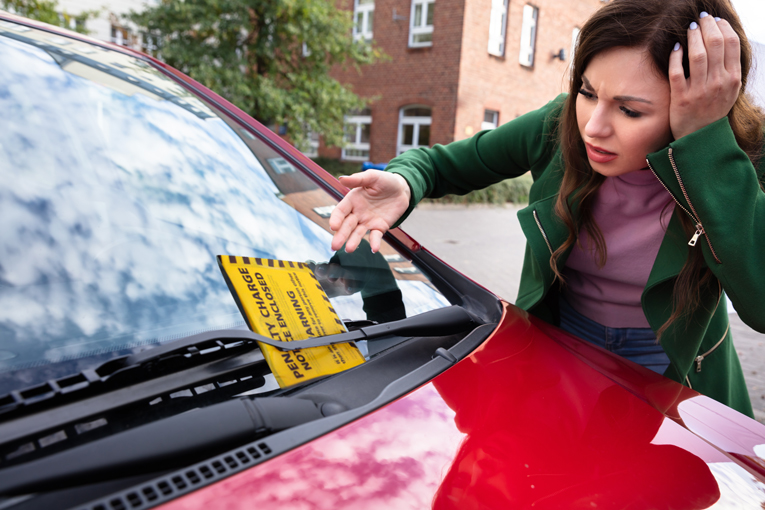Private parking tickets: Do you have to pay them?

The surge in private parking tickets has become a perplexing issue for many drivers. As businesses and property owners increasingly outsource parking management, motorists often find themselves confronted with unexpected charges. This phenomenon raises questions about legality, enforceability, and consumer rights. While this article aims to demystify the complex world of private parking tickets, it’s essential to note that individual cases may vary. For specific advice tailored to your situation, consulting a legal professional is recommended.

Key Takeaway: Can a misstep in signage invalidate a private parking ticket?
Unravel the mystery of private parking tickets and arm yourself with the knowledge to protect your rights and wallet.
Private parking charges vs. Official fines
Private parking tickets, contrary to popular belief, are not official fines but contractual charges issued by landowners or their agents for alleged parking infractions. These charges differ from government-issued fines in several key aspects:
- Legal basis: Rooted in contract law, not traffic regulations.
- Issuing authority: Private companies, not local councils or police.
- Enforcement method: Civil action, rather than criminal proceedings.
- Appeal process: Through independent panels, not formal court systems.
- Appearance: Often mimic official documents, but lack statutory backing.
Understanding private parking contracts
When you park on private property, you’re unwittingly entering into a contract with the landowner. This silent agreement forms the basis for private parking tickets and is built on several key legal principles:
- Implied consent: By parking, you’re deemed to accept the terms displayed.
- Property owner’s prerogative: Landowners have the right to set parking rules.
- Conspicuous communication: Clearly visible signs serve as contract terms.
- Actions speak louder: Your act of parking signifies agreement to conditions.
- Onus on the issuer: Parking companies must prove terms were adequately displayed.
Scrutinizing the ticket: Is your charge legitimate?
Before resigning yourself to paying a private parking ticket, it’s crucial to evaluate its validity. A meticulous examination of the circumstances surrounding the alleged infraction can reveal potential grounds for challenge:
- Signage clarity: Were terms prominently displayed and easily comprehensible?
- Timing discrepancies: Do your parking duration records match the ticket’s claims?
- Extenuating circumstances: Did an emergency or vehicle breakdown occur?
- Photographic evidence: Does the provided proof accurately depict the situation?
- Operator accreditation: Is the issuing company registered with an accredited trade association?
Strategies for handling private parking tickets
When confronted with a private parking charge, you’re faced with three primary courses of action, each carrying its own set of implications:
- Prompt payment: • Often results in reduced fees if settled swiftly • Closes the matter definitively, preventing escalation • May be advisable if the charge is clearly valid.
- Launching an appeal: • Allows you to present your case and supporting evidence • Can lead to charge cancellation if successful • Typically involves a structured process through independent adjudicators.
- Non-response approach: • May result in escalating charges and potential legal action • Could impact your credit score if a court judgment is obtained • Risks incurring additional costs for debt recovery procedures.
Seeking legal counsel: When to enlist professional help
While many parking disputes can be resolved without legal intervention, certain situations may warrant professional assistance. Consider consulting a lawyer if:
- The charge is substantial, potentially impacting your financial stability.
- You’ve received court summons or legal threats from the parking company.
- Your case involves complex legal issues or unusual circumstances.
- Multiple tickets have accumulated, significantly increasing your liability.
- You’re unsure about the validity of the parking company’s claims or practices.
FAQs
- How do private companies typically pursue payment? They often start with reminder letters, escalating to debt collection agencies. Some may use legal threats or credit score warnings to encourage payment.
- Have there been any recent legal changes affecting private parking tickets? Recent developments include stricter regulations on signage clarity, grace periods, and appeal processes. Some jurisdictions have introduced caps on penalty amounts.
- What’s the typical timeline for enforcement actions? It varies, but companies usually escalate from reminders to more serious actions over 2-3 months. Legal proceedings, if pursued, can take several more months.
Conclusion: Private parking tickets inhabit a complex legal landscape. By understanding your rights, scrutinizing charges, and choosing appropriate responses, you can effectively manage these situations. Whether paying, appealing, or seeking legal advice, informed action is key to protecting your interests and wallet.
Facing a private parking ticket dilemma?
Qredible simplifies your quest for legal advice. Our platform connects you with attorneys well-versed in parking law and consumer rights.
KEY TAKEAWAYS
- Private parking tickets are contractual charges based on implied agreements, not official government fines.
- Assess the validity of the ticket by examining signage clarity, circumstances of the alleged violation, and the issuer’s credentials.
- You have three main options: pay promptly, appeal with supporting evidence, or risk the consequences of ignoring the charge.
- Enforcement can escalate from initial reminders to debt collection attempts and potentially court action.
- Consider seeking legal counsel for complex cases, multiple tickets, or when facing significant financial impact.
Do you need a solicitor?
Find a solicitor on Qredible in just a few easy steps
















